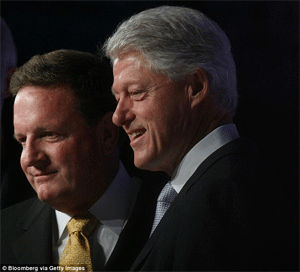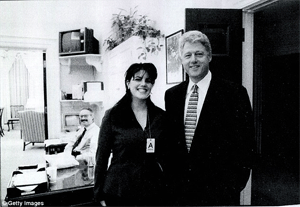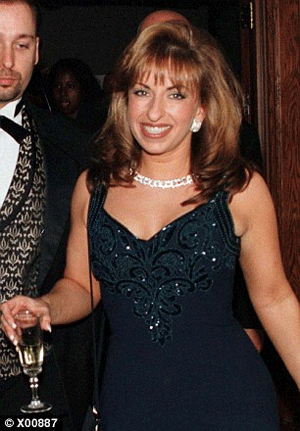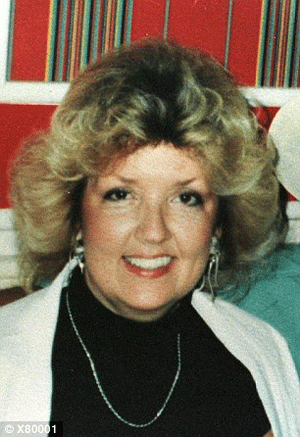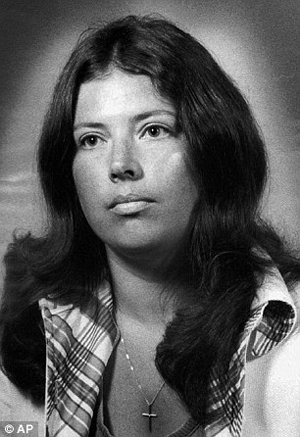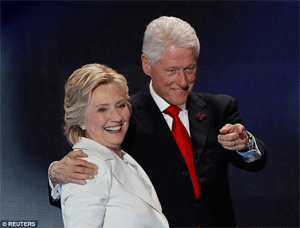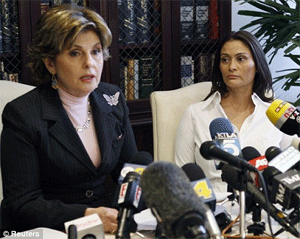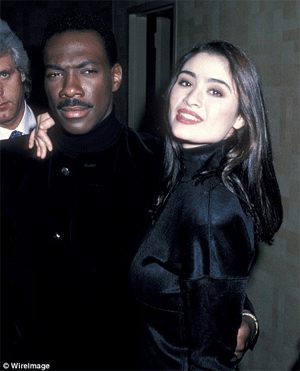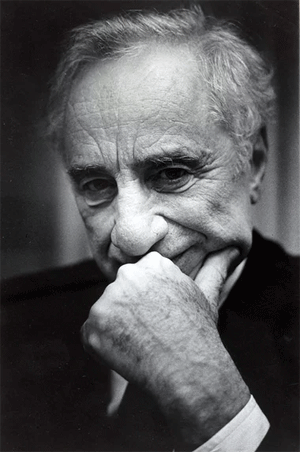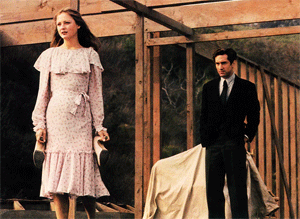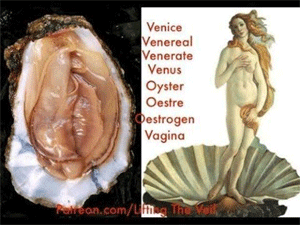Top NPR News Executive Mike Oreskes Resigns Amid Allegations Of Sexual HarassmentHeard on All Things Considered
November 1, 20174:53 PM ET
NOTICE: THIS WORK MAY BE PROTECTED BY COPYRIGHTYOU ARE REQUIRED TO READ
THE COPYRIGHT NOTICE AT THIS LINK BEFORE YOU READ THE FOLLOWING WORK, THAT IS AVAILABLE SOLELY FOR PRIVATE STUDY, SCHOLARSHIP OR RESEARCH PURSUANT TO 17 U.S.C. SECTION 107 AND 108. IN THE EVENT THAT THE LIBRARY DETERMINES THAT UNLAWFUL COPYING OF THIS WORK HAS OCCURRED, THE LIBRARY HAS THE RIGHT TO BLOCK THE I.P. ADDRESS AT WHICH THE UNLAWFUL COPYING APPEARED TO HAVE OCCURRED. THANK YOU FOR RESPECTING THE RIGHTS OF COPYRIGHT OWNERS.
NPR's Mary Louise Kelly talks with NPR CEO Jarl Mohn about how NPR has handled allegations of sexual harassment against NPR's Senior Vice President for News Michael Oreskes, who resigned Wednesday.
Transcript:MARY LOUISE KELLY, HOST:
And we are reporting on news from inside the NPR newsroom today. Our top editor, NPR Senior Vice President of News Mike Oreskes, has resigned following accusations of sexual harassment. Three women have filed complaints, one a current NPR reporter, the other two alleging harassment from two decades ago when Oreskes was at The New York Times. [EDITOR'S NOTE on Nov. 8: Since this interview was broadcast, NPR CEO Jarl Mohn has revealed that another woman who works at NPR filed a complaint against Michael Oreskes in the fall of 2015, and that Oreskes was disciplined “for both incidents.” There is more about that revelation here .] Mike put out a statement this afternoon saying, quote, "I am deeply sorry to the people I hurt. My behavior was wrong and inexcusable, and I accept full responsibility," end quote. NPR CEO Jarl Mohn says he asked for Oreskes' resignation this morning, and Jarl joins me now in the studio. Hi there.
JARL MOHN: Hi, Mary Louise.
KELLY: When did you first learn of an allegation of sexual harassment in connection with Mike Oreskes?
MOHN: Well, the first situation was the one you just referred to, was the - I guess in the fall of '15.
KELLY: So just to be clear, nothing had come to your attention, no allegations at the point when you hired him in the spring of 2015.
MOHN: None, none.
KELLY: You knew nothing.
MOHN: None.
KELLY: There have been a lot of questions about the timeline of when NPR knew what. So what I'd love to do is start there and just tick through my understanding of events as they unfolded, and please jump in and stop me if there's something...
MOHN: Sure.
KELLY: ...That doesn't square with events as you understand them. So in 2015, NPR staffer Rebecca Hersher alleged that Oreskes made her deeply uncomfortable at a three-hour dinner and that he asked personal and invasive questions. She complained, and Oreskes was reprimanded that same year, 2015, correct?
MOHN: That's correct.
KELLY: A year later, October 2016, NPR learned about a woman complaining of harassment by Oreskes at The New York Times nearly two decades ago. This complaint involved physical contact. She says he kissed her. He forced his tongue into her mouth, correct?
MOHN: Well, that's what we heard. And that would have been, I think, in the fall of '16, yes.
KELLY: Fall of '16. And then last month, a second woman complained of Oreskes' behavior during his time at The New York Times, a similar complaint that he kissed her...
MOHN: Yes.
KELLY: ...Without being - having been invited to do so.
MOHN: Correct.
KELLY: If that is the sequence, if you knew of these multiple allegations, did it cross your mind that leaving Mike in his job might put other women, might put our colleagues at risk?
MOHN: Yes. Well, let's look at those three examples that you gave, Mary Louise. The first, which occurred in the fall of '15 - that was an internal situation that happened here. It was a terrible situation. I condemn his actions. They were unacceptable. They're deplorable. We investigated. We did it immediately. We involved our HR department. We involved our general counsel. We sat with Mike. We confronted him about that situation and put him on notice that this could not occur. My understanding is - and again, it was reported here. David Folkenflik reported yesterday that that employee felt that we satisfactorily addressed that issue. And there's a whole range - I mean, there's a whole range of what is unacceptable behavior. This was...
KELLY: But that issue you knew about...
MOHN: Yes.
KELLY: ...When a year later a second allegation came in.
MOHN: You're referring to The New York Times, yes.
KELLY: The New York Times - from his tenure at The New York Times.
MOHN: Again, the important distinction here is, first, that did not happen at NPR. It was not an NPR employee. It was at The New York Times, and it occurred 20 years ago. Had that happened at NPR, we would have had a very different reaction to it. It happened 20 years earlier. One of the things we wanted to do as a result of that is make sure that that did not happen here. And I will tell you up to this moment sitting here and talking with you, Mary Louise, I'm not aware of anything that he's done or that happened that bears any resemblance to those issues that occurred 20 years ago while he was at The New York Times.
KELLY: Our media correspondent David Folkenflik has talked to five more women since last night on top of the three cases that we've already discussed, five more women alleging inappropriate conduct by Oreskes over a period of years. Has any other claim reached your office?
MOHN: I would say as a result of the published reports within the past 24 hours, we have heard of one other that has surfaced. I would say when the second New York Times story from...
KELLY: The second woman...
MOHN: Yes.
KELLY: ...Who dealt with Oreskes in his time at The Times.
MOHN: We felt very strongly that we needed to - and there had been rumors circulating around the building here about his behavior - rumors and gossip. We can't act on that. We have to act on facts. I put out an email. I put out a memo, a statement asking for anyone that has experienced or witnessed any of this behavior to please come forward. We laid out a whole array of ways that they could contact us. There must have been seven or eight ways in. Over that two-week period of time, we got no complaints. No one stepped forward. Unfortunately, it took the published reports to have something surface.
KELLY: But when you say it took published reports for this to surface, we're a news organization.
MOHN: Yeah.
KELLY: There's a few hundred reporters out there. Why are we getting scooped by The Washington Post on this?
MOHN: Why are we - are you - you're talking about The New York Times story? When we, you know...
KELLY: I'm talking about The Washington Post story quoting two New York Times woman. And I'll add to that. I learned that Mike Oreskes had resigned when I checked my phone in the line in the NPR canteen today. And the way I learned about it was via an AP news alert - Associated Press. Why did they know and we didn't?
MOHN: Well, because that's not from us. We did not release it. We had a clear timeline of how we were going to release this information. While we were in our meeting planning how we were going to release that information, the AP got the story. I suspect Mike released his statement to the AP. It was not from us.
KELLY: You said you can't act on rumors and gossip. But were you concerned that these accusations were creating a toxic environment in the newsroom?
MOHN: Absolutely, of course. As bad as...
KELLY: Should that not prompt action then?
MOHN: Well, it did, ultimately. We informally were asking questions. Clearly we didn't do everything we could because it didn't result in the right answer. But to suggest we were not doing anything or we were not acting appropriately is not - or that we were doing nothing is false.
KELLY: Let me push you again then on what did push you to act and put Mike on leave as of last night and then ask for his resignation this morning. The Washington Post published his story. He was put on leave within a couple of hours. Was that because new information came to light, came to you?
MOHN: Yes, yes.
KELLY: But you can't elaborate on what that is.
MOHN: I cannot.
KELLY: A new case, a new allegation?
MOHN: New case.
KELLY: Internal?
MOHN: Yes.
KELLY: Current employee?
MOHN: Yes.
KELLY: May I ask the severity of the allegation?
MOHN: Again, I hate...
KELLY: I know, but you've talked about a range, and there's a big range and it matters.
MOHN: I understand, but I'm going to be lambasted for any specificity here. And again, I want to get to the confidentiality of the complaint. I would say on this - on the range of, you know, Harvey Weinstein being on one extreme and the other internal issue that - the complaint that you referred to earlier...
KELLY: Conversation that made a woman feel uncomfortable.
MOHN: Yes. I would say it was clearly in that range.
KELLY: In the uncomfortable conversation range.
MOHN: Yes, yes.
KELLY: Jarl Mohn, our boss, NPR's CEO, talking about the resignation today of our top editor, Mike Oreskes, following accusations of sexual harassment. Jarl, thank you.
MOHN: Thank you, Mary Louise.
Copyright © 2017 NPR. All rights reserved. Visit our website terms of use and permissions pages at
http://www.npr.org for further information.
NPR transcripts are created on a rush deadline by Verb8tm, Inc., an NPR contractor, and produced using a proprietary transcription process developed with NPR. This text may not be in its final form and may be updated or revised in the future. Accuracy and availability may vary. The authoritative record of NPR’s programming is the audio record.




